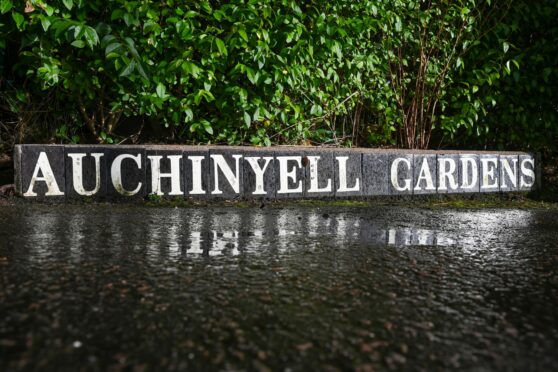Sir, – I enjoyed the article by Angus Campbell in The P&J on February 10 entitled “Words are sparks which enlighten our lives”.
I grew up in Auchinyell Gardens, Aberdeen, many years ago. Our boyish interpretation of the word Auchinyell was that a cyclist was going up the steep brae over the railway and suddenly had a puncture. On investigation he found the culprit. A nail! After a few expletives he said: “Och, a nail!” Our explanation of Auchinyell.
Read Angus Campbell’s column here.
Edward Lancaster, Macleod Road, Balloch, Inverness.
- So glad that the column revived this wonderful old memory. If other readers have their own unique interpretation of the origin of unusual words and names, do let us know.
End floodlighting energy profligacy
Sir, – While I cannot disagree with the idea of using only renewable sourced energy, can I point out that significant reductions can be achieved by the public using only the absolute minimum of electricity for heating and lighting?
I have reduced my consumption by about 40% by simply not using more than one ring on the cooker at a time, by turning off every light in the house and by sitting in the cold while my boiler is off more than it is on.
The problem is OAPs are told to try to keep warm, and my consumption of torch batteries is ever increasing while I try to avoid tripping over things in the dark.
Now, while I can make a joke out of some of this, can I ask why, when we are nowhere near being able to guarantee that renewable power will be available 24/7 due to the vagaries of fickle wind and the problem of trying to find a economical way to store electrical energy which has been produced when demand was low, we persist in floodlighting public buildings, monuments, bridges and the like.
In general, this is just vanity and exhibitionism – there is no need for this profligacy, especially when the costs are increasing so much.
Essential lighting for public safety is obviously needed but the rest of it achieves nothing.
Alastair Armitstead, Achiltibuie, Ross-shire.
How many GPs are part-time only?
Sir, – When it comes to the current shortage of GPs, the communities of Alness and Invergordon are at the extreme edge of the crisis.
From a practice that supported half a dozen doctors there appears to be not one single doctor on permanent duty, with even a seven-day wait for a telephone consultation. The practice is scheduled to be taken over by NHS Highland at the end of March, but time will tell if it will meet the communities’ expectation.
The national shortage of GPs seems to be a simple case of supply and demand, with the number of doctors choosing to go into general practice not meeting anywhere near the demand for their services.
One of the reasons is simply not enough doctors being trained since the available number of training places was reduced by Nicola Sturgeon when she was health secretary, but could another reason be the percentage of GPs who work part-time?
I would be interested to see official figures showing the number of GPs who work part-time and why they have chosen to work part-time. Is it for family reasons? Do they earn an income they are happy with, especially if they do a couple of shifts monthly for NHS 24?
Is it because of the stress of the job? Or is it because of the present tax system, especially in Scotland, which makes working full-time hardly worth their while? Training GPs requires the same investment and time whether they are going to work full-time or part-time, but if part-time GPs become the norm then clearly there is a need for proportionally more doctors to be trained.
Dennis Dunbar, Firhill, Alness.
